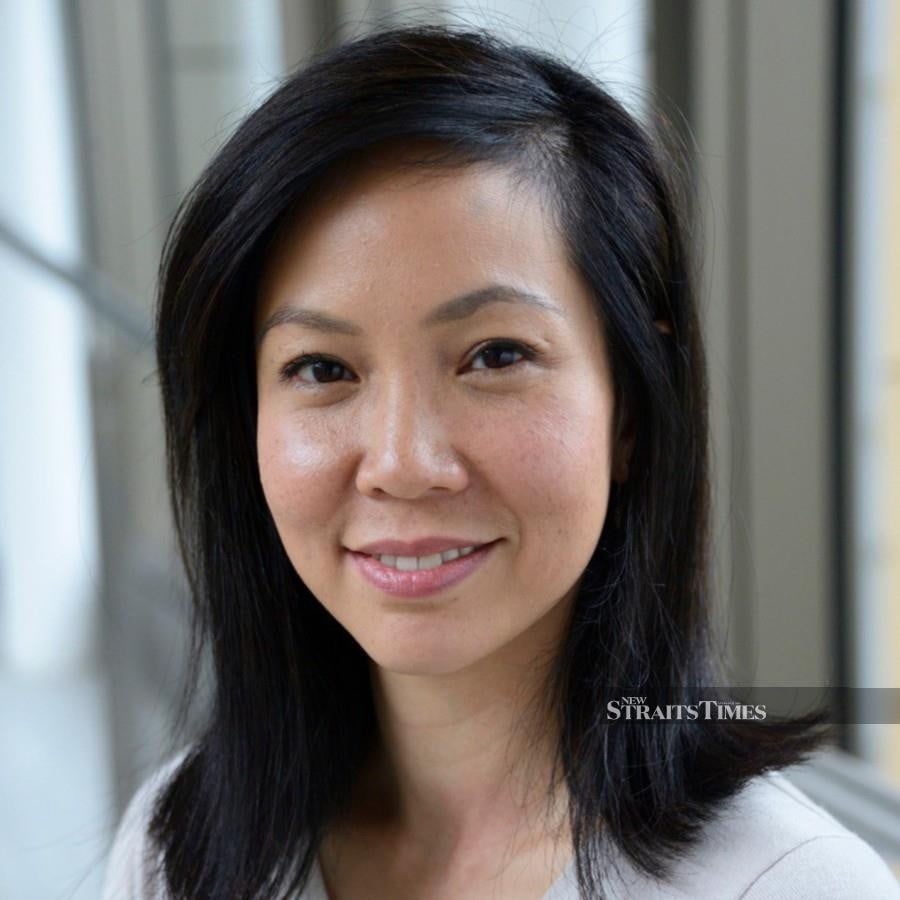Dr Serena wins cancer research prize

KUALA LUMPUR: “Be authentic and stay true to yourself. Be something because you want to, not because anyone else wants you to.”
These are the words that Professor Dr Nik Serena Nik Zainal lives by, and also her advice to others on pursuing their dreams.
Dr Serena, after all, knows what she’s talking about. She has been chosen as the recipient of the Dr Josef Steiner Cancer Research Prize 2019.
Dr Serena, based in the United Kingdom and attached to the University of Cambridge’s Department of Medical Genetics, will receive the award at the University of Bern in Switzerland today.
The award, commonly dubbed the “Nobel prize in cancer research”, is being presented to her for her work on cancer genome interpretation.
Her research work allows for mutations in cancer tumours to be analysed using new bio-informatic methods, which in turn enables new approaches to targeted therapies.
Speaking to the New Straits Times via email, she said it was her late father, Datuk Dr Nik Zainal Abidin Nik Abdul Rahman, who had encouraged her to take every opportunity that came her way.
Dr Zainal was a prominent cardiologist who helped to build the foundations of the National Heart Institute.
“This was what my father told me before I left Malaysia for the United Kingdom in 1993,” said Dr Serena, who was a Petronas scholar for medicine, and is also a Cambridge Commonwealth Trust fellow.
She said although her Kelantanese father had inspired her to pursue her dream, it was her mother who had kept them grounded.
“My mother was a nurse in the past. She was a very solid and stoic person.”
She said she started doing her PhD at the Wellcome Sanger Institute, where she learnt ways to analyse the whole genome sequences of human cancer.

Professor Dr Nik Serena Nik Zainal says it was her late late father, Datuk Dr Nik Zainal Abidin Nik Abdul Rahman, who had encouraged her to take every opportunity that came her way.
On her work, she said it was based on studying the whole genome of cancers to understand the cause of each person’s specific cancer and guide therapeutic intervention.
“Every tumour is individual. And if we can understand the causes of each person’s specific tumour, we may be in a better place to treat it more effectively.
“Although our work began in breast cancer, out methods can be used on any cancer type.”
She said in the era of “Big Data”, genome sequencing produced an enormous amount of data that needed to be analysed using bio-informatic methods.
“My team develop bio-informatic tools to study genomes. We hope that through the award, we can build better tools and distribute it widely so that the whole cancer genome sequencing becomes easier to do, anywhere in the world.”
She said she was humbled by the award and did not expect the positive responses that she received.
Malaysians on social media voiced their pride at her achievements.
She earned plaudits from Deputy Prime Minister Datuk Seri Dr Wan Azizah Wan Ismail, as well as Economic Affairs Minister Datuk Seri Azmin Ali, who were among those who congratulated her.
She attributed the success of her research to patients who participated in sharing their materials, tutors, colleagues and collaborators worldwide, as well as charity organisations that had funded her research, training and grants to pursue her interests.
“When I receive this award, it is truly on behalf of and due to a wonderful group of people as this achievement does not come from the work of only one person.”
She said her family was delighted over her achievement.
Her older brother, Dr Nik Halmey, is a cardiologist at Gleneagles Hospital here.
“He always looked out for me and was always full of good humour,” she said, adding that her sister-in-law, Dr Norlina Ramli, is head of department in ophthalmology at Universiti Malaya.
Dr Serena said her Irish husband, Dr Eoin O’Brien, is a geriatrician and stroke physician.
“He is a very kind, a very solid doctor and a rock in my life. I have two wonderfully energetic children, a 15-year-old boy and an 11-year-old girl. They keep me very busy.”
She said she had been inspired by many people along the way, whose “little touches” helped form the person she is.
She attributed her former school as being among the key formative influences in her life.
“I went to an excellent school, the Bukit Bintang Girls School in Kuala Lumpur .
“It had a fantastic culture. It taught us personal responsibility, accountability, pushing us to be the best we could be, at whatever we do. We also had to clean toilets. It really kept us grounded.”
She encouraged doctors and scientists who aspired to follow her footsteps to give their best and have fun in their work.
“Don’t compare yourself to others. There will always be ups and downs and there will always be some occasions that are fair or unfair. Try to stay committed and true to what you want to do and just go for it.
“Success is in our heads. We are as successful as we would like to believe.”
She also advised others to treat others the way one would expect to be treated.
“In this sort of highly competitive field, success sometimes comes at a cost, but it doesn’t have to.
“We are all just people, someone’s mum, dad, brother, sister, daughter, son. We are all deserving of respect.”
